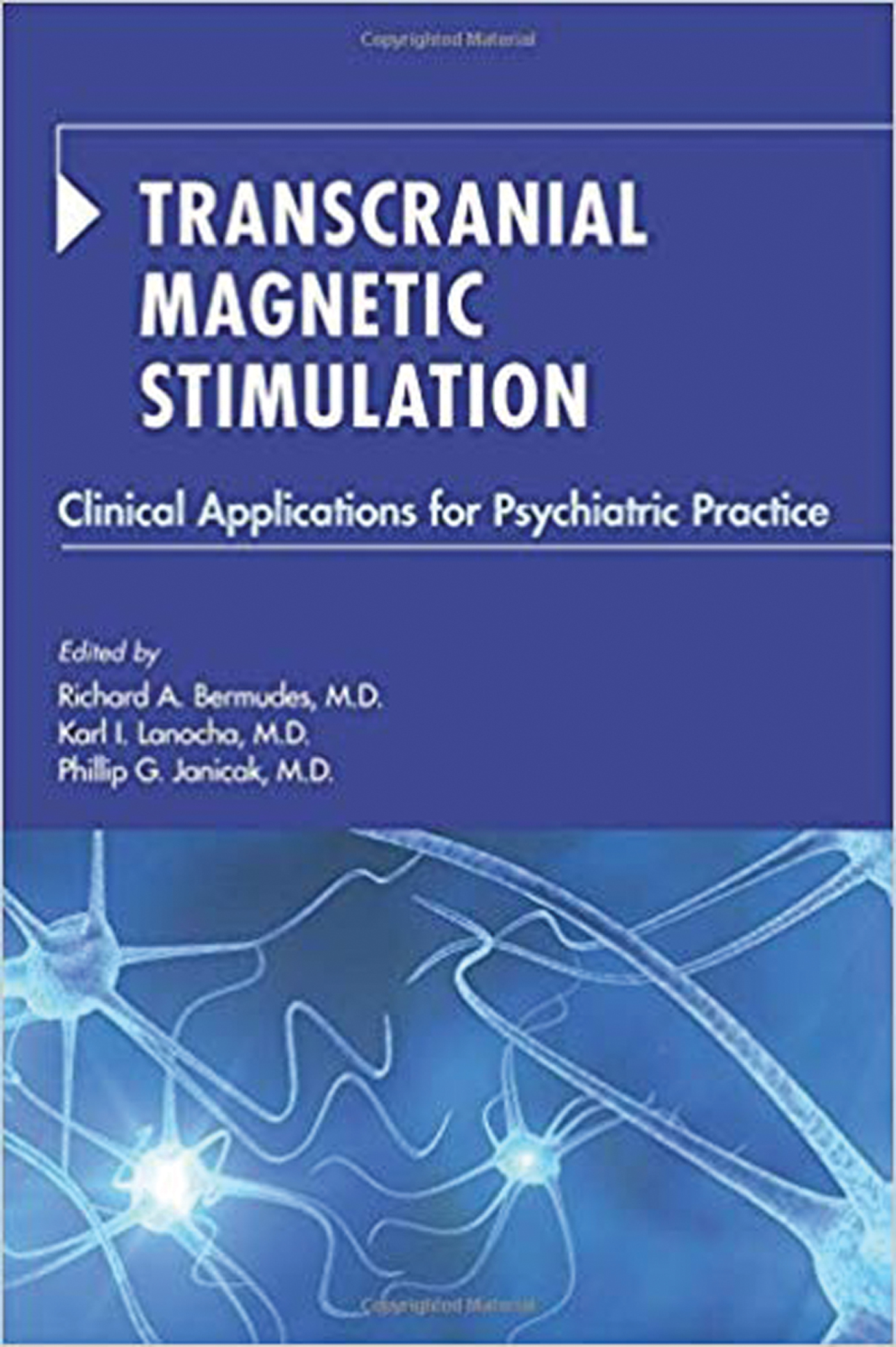
On cursory inspection the book impresses as parochial, belonging to the great parish across the pond, with no reference to anything happening inside the NHS or elsewhere within Europe; page-long tables cover Medicaid, Medicare and Veterans Administration coverage policies for TMS, private insurance policies, a whole chapter on FDA-cleared devices, and an appendix on TMS training courses, all in the USA. But pique is soon followed by a sense of shame: here is a little handbook, written by informed practitioners from across the USA for interested clinicians. Solid reviews are interspersed with clinical vignettes, crucial data listed systematically, speculative information labelled as such. It reflects a thriving practice, offering evidence-based treatment to as many patients as possible in a health system we typically consider as inferior to ours.
There is a reference to UK research: Anthony Barker's TMS work in Sheffield and his team's seminal 1985 Lancet paper on the application of TMS appears just after the obligatory mention of Michael Faraday's principles of electro-magnetic induction. As usual, apart from a small pioneering Welsh company producing TMS equipment, little of the large-scale exploitation of our scientific advances has remained in this country. Even the gigantic industrial resource of the NHS has not been put to use, whether due to the mental health services being split off from the required medico-physical and physiological expertise in the acute medical NHS trusts, the Luddite Tendency within the Royal College of Psychiatrists, or the dead hand of austerity that seems to require considerable shroud-waving to loosen funds from established services.
On balance, I would therefore recommend the book. It provides practical and simple advice about the use of TMS in depression. If you want to start your own service, it is obligatory reading not only for the practitioner, but also for anybody involved in the commissioning, running or evaluation of the service. Just view the Americanisms not as an irritant, but as a spur to do better than we have done so far. If nothing else, it may prepare you for the exciting new post-NHS post-EU world envisaged by some.





eLetters
No eLetters have been published for this article.